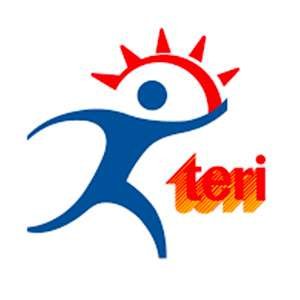TERI School of Advanced Studies (MSc. in Economics through CUET PG)
The Environment and Resource Economics program is designed to tackle the escalating environmental challenges driven by increased material consumption in our post-war world. It seeks to comprehend and assess the interactions between the environment and society, with a focus on their impact on human welfare. Through a deep understanding of economic theory and methods, this program strives to develop effective policy tools that support the preservation and improvement of the quality of life on our planet in the long run, considering ecological, environmental, and natural resource limitations. It equips students with the skills needed to address a broad spectrum of economic issues arising from these constraints.
MSc Economics Admission Procedure
The admission procedure involves both an entrance exam (CUET PG) and an interview.
Eligibility for the MSc in Economics Program at TERI School of Advanced Studies
A B.A. (Hons.) or B.Sc. (Hons.) degree in Economics with a minimum of 50% marks in aggregate (or CGPA of 5.65).
(OR) A Bachelor’s degree in any other discipline with at least 60% marks in aggregate (or CGPA of 6.75).
Additionally, applicants must have studied mathematics either at the 10+2 level or at the Bachelor’s level, either as a subsidiary or as an honors subject.

No. of Seats for TERI MSc Economics Program
The program has a total of 60 seats available.
Fees for TERI MSc Economics Program
The tuition fee for one semester at the TERI School of Advanced Studies is Rs. 86,900.
Economics (COQP10) Syllabus for CUET PG 2024
Microeconomics
Consumer Theory:
Demand, Utility, Indifference Curve, Revealed Preference Theory, Consumer Surplus. Production Theory: Production Function, Law of Variable Proportions, Returns to Scale, Cost Function.
Price and Output Determination in Markets:
Perfect and Imperfect Competition, Monopoly, Price Discrimination, Monopolistic, Duopoly, and Oligopoly models, General Equilibrium, Efficiency, and Welfare.
Macroeconomics:
National Income Accounting. Income and Output Determination: Aggregate Demand and Aggregate Supply, Effective Demand Principle, Classical and Keynesian Theory.
Money and Inflation:
Demand and Supply of Money, Money Multiplier, Credit Creation, Role of Reserve Bank of India, Quantitative Theories of Money, Philip’s Curve, Monetary and Fiscal Policy of India.
Consumption and Investment Function:
Permanent, Relative, and Life Cycle Hypothesis, Multiplier and Accelerator.
Open Economy Models:
Mundell and Fleming Model, Balance of Payments, Exchange Rate Determination, Purchasing Power Parity.
Economic Growth:
Harrod-Domar Model, Solow Model.
Statistical Methods in Economics:
Mean, Mode, Median, Dispersion, Skewness, Quartile Deviation, Average Deviation, Standard Deviation. Correlation.
Mathematical Methods in Economics:
Sets and Vectors. Functions of one and several real variables, Single and Multi-variable optimization, Integration of functions.
Difference equations, Determinants, Matrix. Linear Programming, Probability, Differential Equations.
Indian Economy:
Overview of Colonial Economy: Macro Trends, Agriculture, Railways, and Industry, Economy and State in the Imperial Context.
New Economic Policy.
Public Economics: Public and Private Goods, Externalities, Budget, Deficits, Public Debt, Fiscal Federalism in India, Taxation.
International Trade Theories: Adam Smith, Ricardo, Heckscher-Ohlin model, and New Trade Theories.
A more detailed syllabus has been included in our Blogs.
CUET PG Entrance Exam Paper Pattern and Marking Scheme
1.This paper contains One Section. It contains Domain Specific area comprising of 75 MCQs
2.Total No of Questions- 75
3.Marking Scheme:
4 marks will be awarded for each correct response.
1 mark will be deducted for each incorrect response.
Total Time Allotted : 105 Minutes
TERI MSc Economics Placements
Graduates from the TERI School of Advanced Studies have been remarkably successful in securing placements in various esteemed organizations. These include the Indian Statistical Institute, EY, HCL, Infosys, TCS, Larsen Toubro Reserve Bank of India, Ministry of Finance, KPMG, Boston International, Development Alternatives, NCAER (National Council of Applied Economic Research), International Labour Organisation, Greenpeace India, NIPFP (National Institute of Public Finance and Policy), India Infrastructure, and many more. This strong placement record reflects the institution’s commitment to providing its students with valuable career opportunities in both the public and private sectors.



